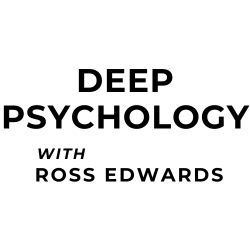Let’s discuss damaging self-talk: what it’s, the way it impacts us, easy methods to turn into conscious of it, and easy methods to detach from it.
If damaging self-talk appears summary or overseas to you, I hope you’ll uncover that it’s some of the widespread experiences we have now as human beings, no matter who we’re.
And in the event you already perceive how highly effective it’s, you’ll study a robust meditation method to begin to observe it and free your self from it.
First, let’s outline damaging self-talk.
Definition
Fortuitously, damaging self-talk is simple to outline. And because it dominates our lives, we’re all very acquainted with it.
Adverse self-talk is any psychological chatter that’s vital and self-directed. In my upcoming article on examples of damaging self-talk, we’ll have a look at many varieties in order that you understand precisely what I’m referring to it.
That is totally different from damaging chatter or damaging psychological speak, which incorporates any and all damaging ideas.
If this damaging psychological speak will get intense, we then generally begin talking out loud to ourselves in the identical approach.
As people, we have now every kind of psychological chatter or psychological speak. We take into consideration every kind of issues, all day day by day, and most of us don’t know we’re doing so.
We chatter internally about our previous, our future, different individuals, locations we’ve been, what we like, what we dislike, what’s proper, what’s incorrect. Our psychological speak is so ubiquitous that we are able to’t see it for what it’s.
In reality, we are able to chatter about any expertise that we have now ever had or can think about. We even have psychological pictures, and so they are likely to buttress and reinforce our psychological speak, making a convincing inside psychological world.
Typically occasions in our lives set off it, too: if we fail an examination or make a mistake at work, our damaging self-talk tends to flare up.
And, amazingly, it’s not solely kicked into motion by occasions in our lives. It’s truly our default expertise. It begins up by itself, over and over all through our day.


Our Default Expertise
I need to reveal one thing surprising to you.
You may learn the outline of damaging self-talk and conclude that it constitutes a minor a part of your life. In any case, why would we stroll round criticising and tormenting ourselves all day, lamenting our lives?
However that’s precisely what we do. A landmark research at Harvard College confirmed that, when our consideration is unoccupied, we rapidly turn into absorbed in wild, random, damaging inside chatter. That’s, we default to it.
We chatter internally on a regular basis about ourselves, and far of the time, it’s damaging. Should you don’t imagine me, begin a meditation observe and face your thoughts sq. on. You’ll be shocked at how a lot damaging self-talk you will have each throughout meditation and through your day.


Observe your self, and also you’ll realise that you just’re typically on this state once you’re doing issues, when your consideration is supposedly occupied. It’s virtually as if we want a big degree of enter to be taken out of zombie mode. Being occupied quickly turns it off. In any other case, it could at all times be on!
What number of instances have you ever acquired in your automotive, pushed from A to Z, and had no reminiscence of the journey? It’s doubtless you had been misplaced in your ideas that had been fully unrelated to the scenario. They fully hijacked your consideration.
What’s extra, these researchers additionally measured the mind exercise of individuals when “at relaxation”: when their consideration wasn’t occupied. They discovered that sure components of the mind had been lively once they had been absorbed of their damaging inside speak, however inactive when not. This led the researchers to conclude that the mind has a Default Mode Community, to which it defaults when our consideration isn’t absorbed in something.
Take into consideration that: our default mode is to not be what’s round us, or listening to, or feeling, and even to intentionally serious about issues. It’s to be misplaced in damaging ideas.
That’s proper: our default mode – the default human expertise – is random, damaging ideas.
Positive, it’s not at all times self-directed damaging chatter. However observe your self fastidiously and chances are you’ll discover that you just spend a big period of time in damaging self-talk: criticising your self, flagellating your self, telling your self every kind of damaging tales.
In reality, damaging rumination is inextricably linked to melancholy. As Segal, Williams and Teasdale concluded of their e book on Mindfulness-based Cognitive Remedy, insatiable damaging considering is likely one of the signs of a depressive thoughts, and consciousness and detachment from our ideas is an important solution to forestall relapse in depressed individuals.
the duty of relapse prevention is to assist sufferers disengage from these ruminative and self-perpetuating modes of thoughts once they really feel unhappy
zindel Segal, j. williams & john teasdale
Although we’re not all clinically depressed, the Harvard research suggests we’d do effectively to ask ourselves how a lot torment our psychological habits trigger us.
My Conclusions On Adverse Self-Discuss
After spending a very long time observing my very own damaging self-talk, I’ve come to the conclusion that it’s largely:
- catastrophic (in a research, researchers recorded individuals’ damaging predictions for his or her future, and 90% of them by no means got here to fruition);
- depressive (it’s repetitive and significant),
- disempowering (it drains you, leaves you feeling hopeless, and overrides your decision-making skills),
- unfaithful (that’s proper, it’s principally BS, unconnected to actuality in any approach), AND
- ineffective (it serves no actual goal).
I take into account myself a essentially pleased, upbeat particular person, but I can see the way it influences my life in myriad methods.
And finally, I’ve realised that although my ideas seem to create a coherent self-identity, they actually aren’t who I’m. I’m way more than my ideas. Ideas are simply “stuff” that I expertise. Nothing extra, nothing much less.
Your Job: Illuminate Your Adverse Self-Discuss
It’s actually no use studying this text, agreeing with it, then shifting on together with your life. To grasp what damaging self-talk is and the way it impacts your life, you should see it for your self. You need to witness it and its damaging results.
There are two elementary approaches to this:
- Mindfulness of Thought: Study this highly effective meditation for damaging ideas;
- Throughout day by day life: In that article, after explaining the method, we have a look at easy methods to take it into your day by day life. Should you do that, chances are you’ll be shocked to find how all-consuming your psychological chatter is.
Conscious consciousness provides us invaluable intel on our inside life and the way we actively keep damaging states. These are highly effective abilities you should utilize for the remainder of your life, and you can begin constructing them in the present day.
By doing this, you might be each going an consciousness of damaging self-talk and studying easy methods to detach from it, to see that it’s simply psychological exercise, and that you just don’t must hearken to it. After you have a primary consciousness of your inside speak, you possibly can then start to journal, spot patterns, and begin rewiring it.
And in the event you observe Mindfulness of Thought sufficient, to the purpose you possibly can keep razor-sharp focus in your ideas, you’ll ultimately come to understand that ideas are:
- substanceless, ghostly, flimsy, clear;
- impermanent, fleeting;
- inaccurate, imaginary, unreal;
- impersonal,
- not who you might be.
And your relationship to them won’t ever be the identical once more.


Should you dig this text on damaging self-talk, do learn my different articles on this topic:
Examples of Adverse Self Discuss
Reframing Adverse Self Discuss
And watch this episode for extra recommendations on easy methods to see by your thoughts:


Welcome! I’m Ross Edwards BSc DipBSoM, founding father of Deep Psychology
Enthusiastic about psychospiritual transformation?
Be part of me for courses and 1-1 teaching


Grasp The Necessities of Mindfulness Meditation and Construct a Stable Basis in Religious Observe
The web Mindfulness Meditation For Newcomers Course provides you 20+ classes filled with methods, recommendation and discoveries.
It is a six-week journey into an important mindfulness methods and a profound exploration of your self.



